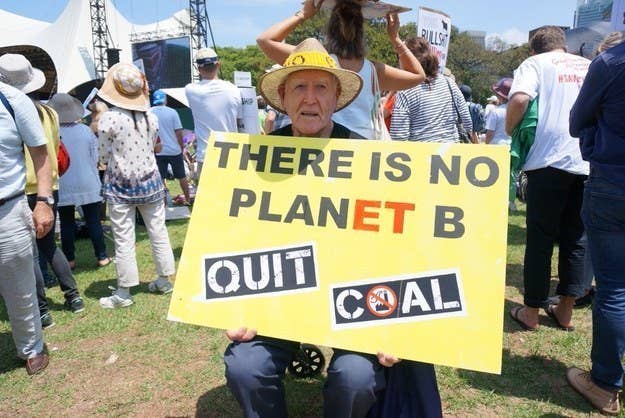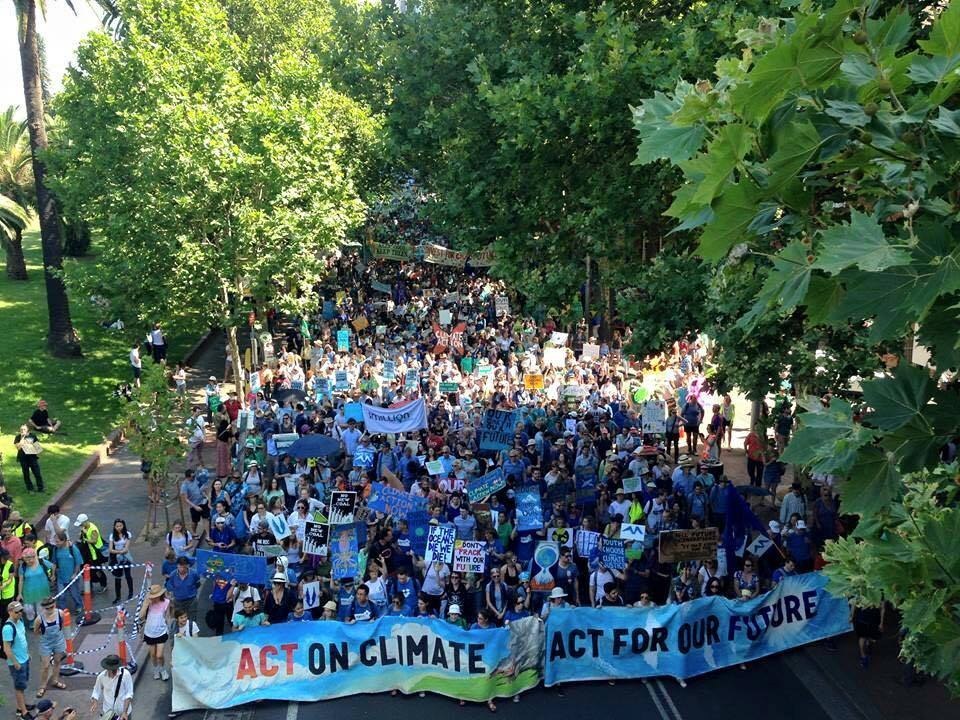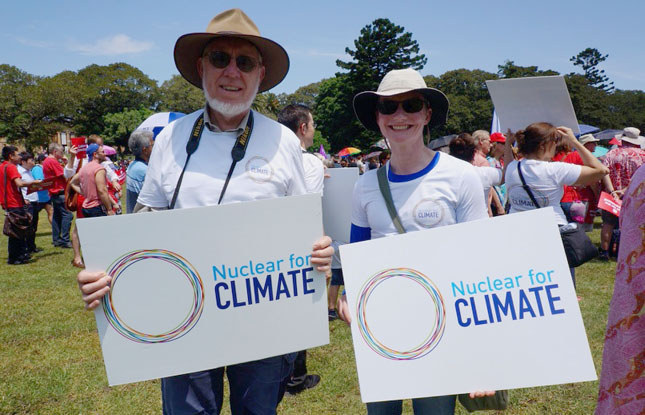The People's Climate March event in Sydney saw around 45,000 people gather in the Domain from a diverse range of groups, calling on the government to commit to targets at the upcoming United Nations COP 21 climate talks in Paris.
There were scientists, doctors, religious leaders, environmental activists, politicians, families, musicians and international communities all represented at the event, which followed similar marches around the world.

But the inclusion of a small group advocating for nuclear power as a response to climate change saw indigenous groups boycotting the event at the eleventh hour.
Redfern Aboriginal Tent Embassy and SOS Blak Australia Sydney boycotted the march, claiming the Aboriginal community didn't support the nuclear movement.
"The group Nuclear For Climate Change has been allowed to take part in the People's Climate March in Sydney. This is a complete contradiction to the climate change movement," read a statement from the two groups, issued on social media.
"Also during the consultation with Aboriginal community members and Elders it was expressed on more than one occasion in more than one meeting that the Aboriginal community does not support ANY nuclear movement and would not be involved or aligned with such groups.
"There are currently plans to dump nuclear waste and mine uranium from traditional lands which also is connected to forced community closures. We do however strongly support the Anti Nuclear Movement!"
In response, the organisers of the People's Climate March Sydney issued an apology and clarified their anti-nuclear position.

All that controversy didn't stop the pro-nuclear groups from turning up to the rally.

Rob Parker from the Australian Nuclear Association told BuzzFeed News that his group was at the march to try and alleviate fears about nuclear energy.
He suggested the boycott by the indigenous groups could have been influenced by other green groups.
"I am aware that there were people within a political organisation who weren't keen on this, who may have mobilised some of those people," he said. "So you have to be very careful of who's pulling the strings in these things."
Parker said nobody was forcing the local Aboriginal communities to take waste.
"There is no suggestion that they'd have to put up with nuclear waste that's been generated by the rest of Australia unless they want to. They make the decision, they can elect in or out, it's entirely up to them," he said.
The Australian Nuclear Association believes renewable energy will not be enough to cut emissions.
"We're quite convinced that we need to have nuclear as part of the solution for climate change, to hit all the intractable problems like transport, steel, aluminium and nickel manufacture. They make up two thirds of all emissions.
"We're not knocking renewables, people can use them and there may be a place of them. But we're gonna need everything in the armory, not just one or two hitters," Parker said.
The federal government is currently trying to find a site to dump radioactive medical waste, after a long-running plan to establish a facility at Muckaty Station in the Northern Territory fell through when there was opposition from traditional owners.
Resources Minister Josh Frydenberg has released a shortlist of six other potential sites that could be the first nuclear dump site in Australia.
